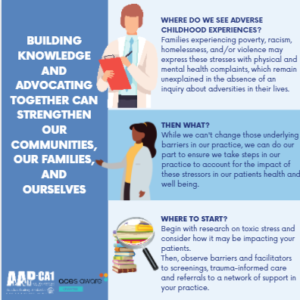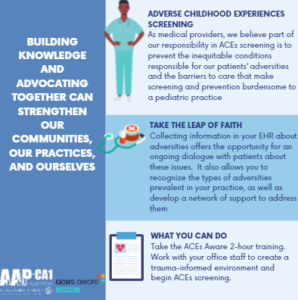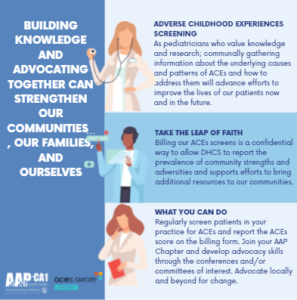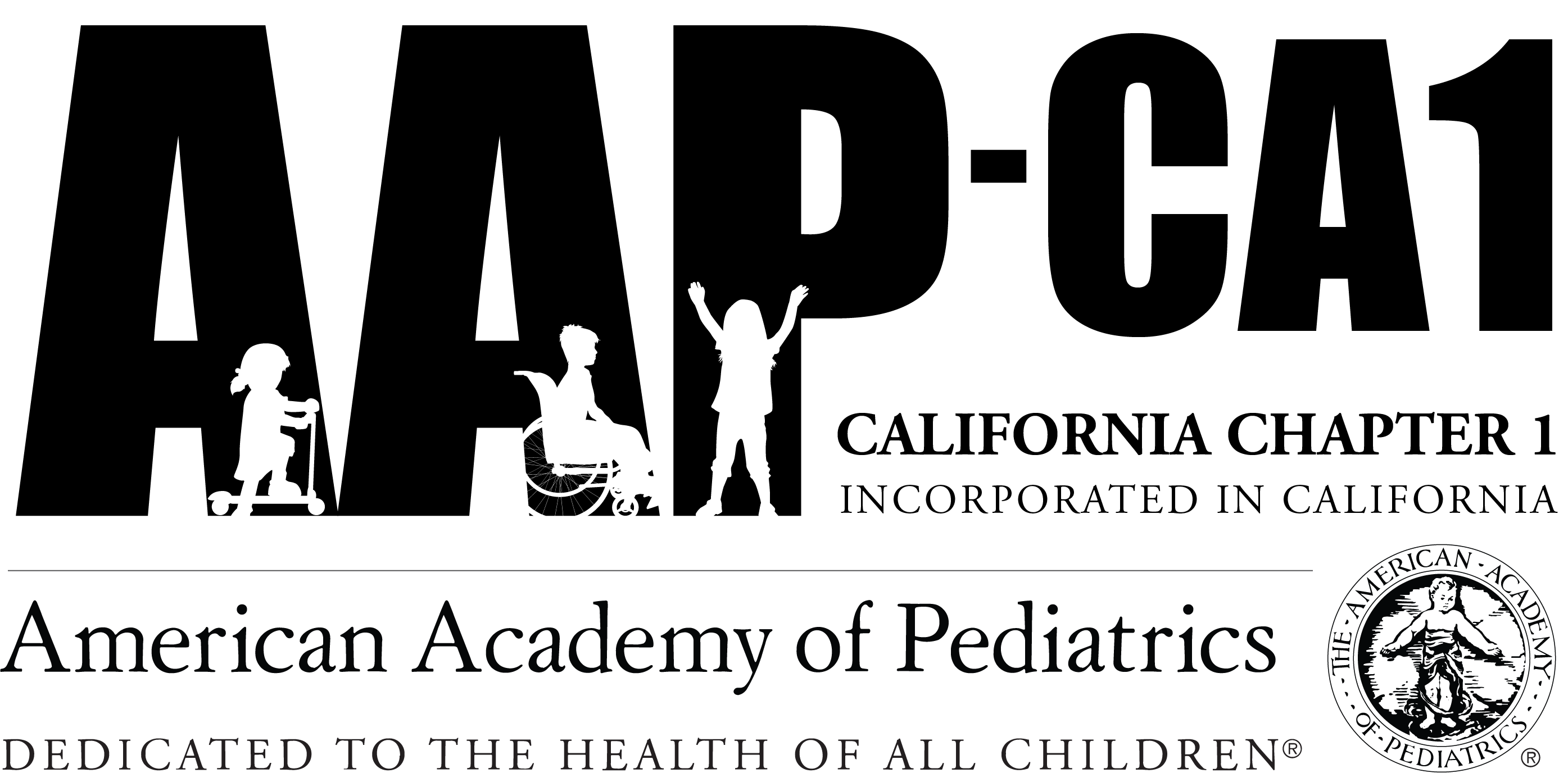Although you may be familiar with the significance of ACEs in daily practice, it can sometimes be difficult to integrating those screenings sustainably into your practice. Allow us to advise you on how to best integrate that into your practice, follow up with patients and connect them to community resources so that they can feel supported leaving the office.
Building knowledge and advocating together can strengthen our communities, our practices, and ourselves
As medical providers, we believe part of our responsibility in ACEs screening is to prevent the inequitable conditions responsible for our patients’ adversities and the barriers to care that make screening and prevention burdensome to a pediatric practice. We also value knowledge and research; communally gathering information about the underlying causes and patterns of ACEs and how to address them will advance efforts to improve the lives of our patients now and in the future.
I Want to Learn More About
It is great that you have a familiarity with ACEs and trauma informed care! Click below to implement a sustainable way to address ACEs in your patients every day.
Bite Sized Considerations
How Do I Sustain ACEs Screening in My Practice?
 Maybe you’re already screening, but maybe not all your patients. Or maybe you’re not billing. Maybe you are but your colleagues are not screening or billing.
Maybe you’re already screening, but maybe not all your patients. Or maybe you’re not billing. Maybe you are but your colleagues are not screening or billing.
Learn how TIC practices can further strengthen your relationships with your patients and families, your staff, and prevent burnout and secondary traumatic stress. It is important to include your staff for long-term success. Learn how to sustain ACEs screening.
Take Action
Building knowledge and advocating together can strengthen our communities, our practices, and ourselves.
 As medical providers, we believe part of our responsibility in ACEs screening is to prevent the inequitable conditions responsible for our patients’ adversities and the barriers to care that make screening and prevention burdensome to a pediatric practice. We also value knowledge and research; communally gathering information about the underlying causes and patterns of ACEs and how to address them will advance efforts to improve the lives of our patients now and in the future.
As medical providers, we believe part of our responsibility in ACEs screening is to prevent the inequitable conditions responsible for our patients’ adversities and the barriers to care that make screening and prevention burdensome to a pediatric practice. We also value knowledge and research; communally gathering information about the underlying causes and patterns of ACEs and how to address them will advance efforts to improve the lives of our patients now and in the future.
All families are influenced by the physical, social and economic conditions of the communities they live in. As pediatricians, we have the ability to recognize the strengths and adversities of our local communities and advocate for improvements. Billing our ACEs screens is a confidential way to allow DHCS to report the prevalence of community strengths and adversities and supports efforts to bring additional resources to communities of concern. By participating in local or statewide collaboratives and advocacy efforts, we can also identify barriers to patients receiving support, such as mental health care or patterns that predict resilience, such as afterschool programs. The privilege that we have as trusted listeners can result in changes if we speak up!
Take Action
Social Media Toolkit To Share With Your Networks



Getting Started Graphic Deeper Dive Graphic Advanced Graphic
Resources
Instilling Resiliency
Follow Dovetail Learning in this free guided resiliency session to build resiliency in your patients and yourselves as you continue to implement ACEs informed and trauma informed care into your practice. Click here and below to register for a free resiliency health care training, available now through February.
